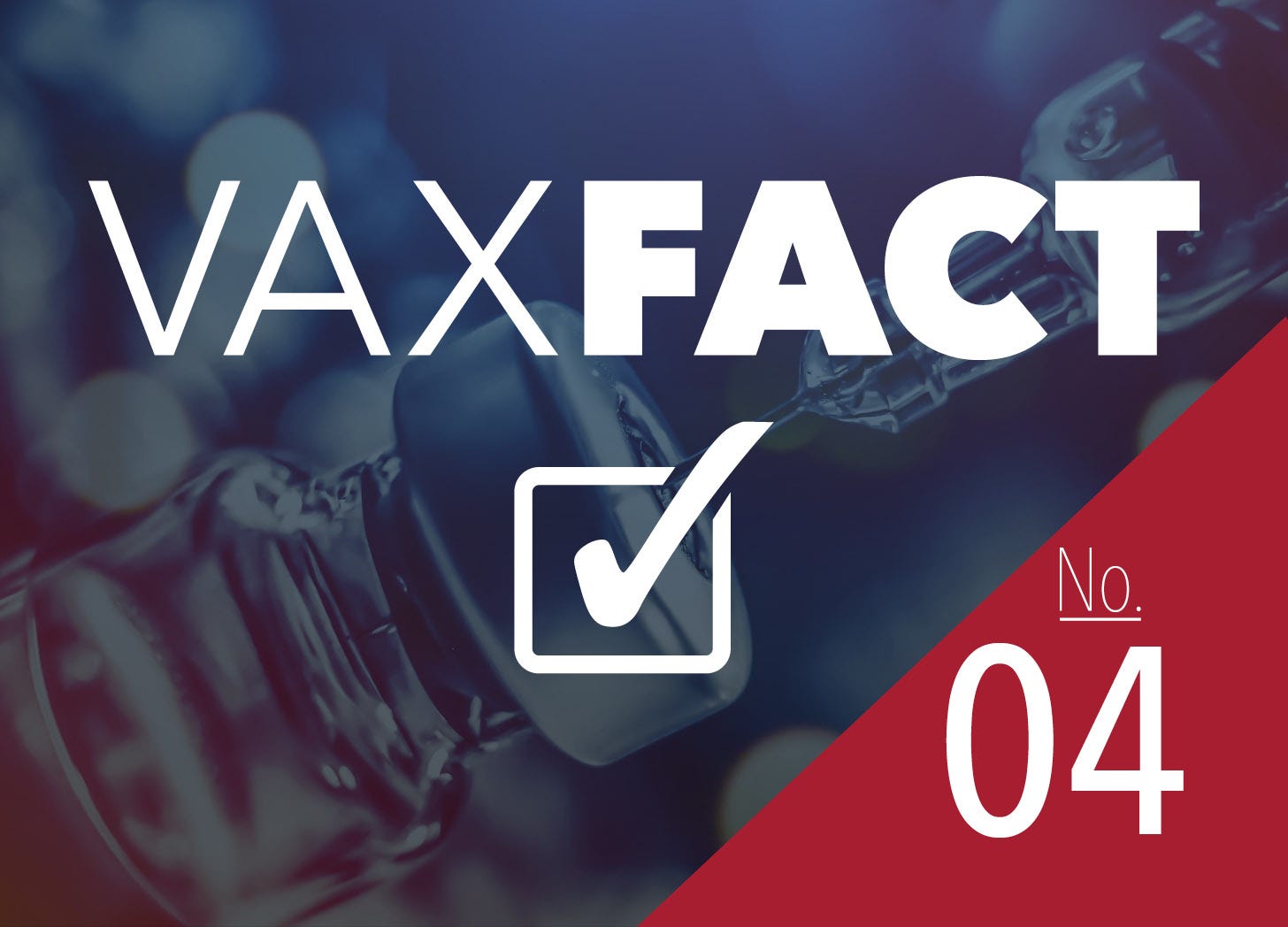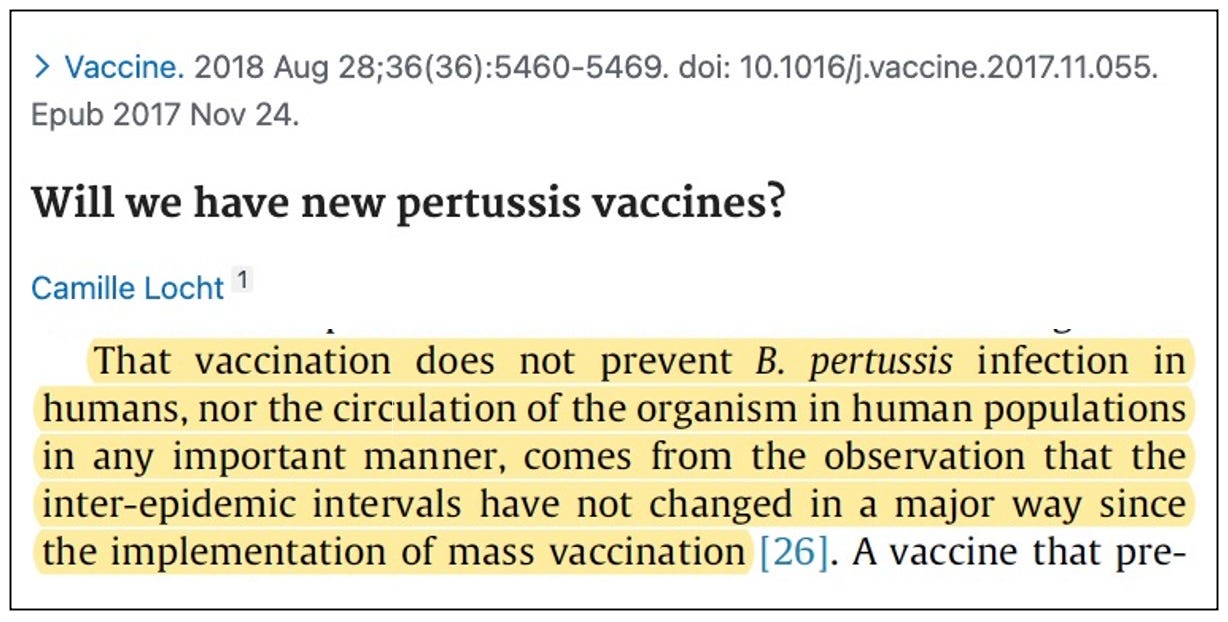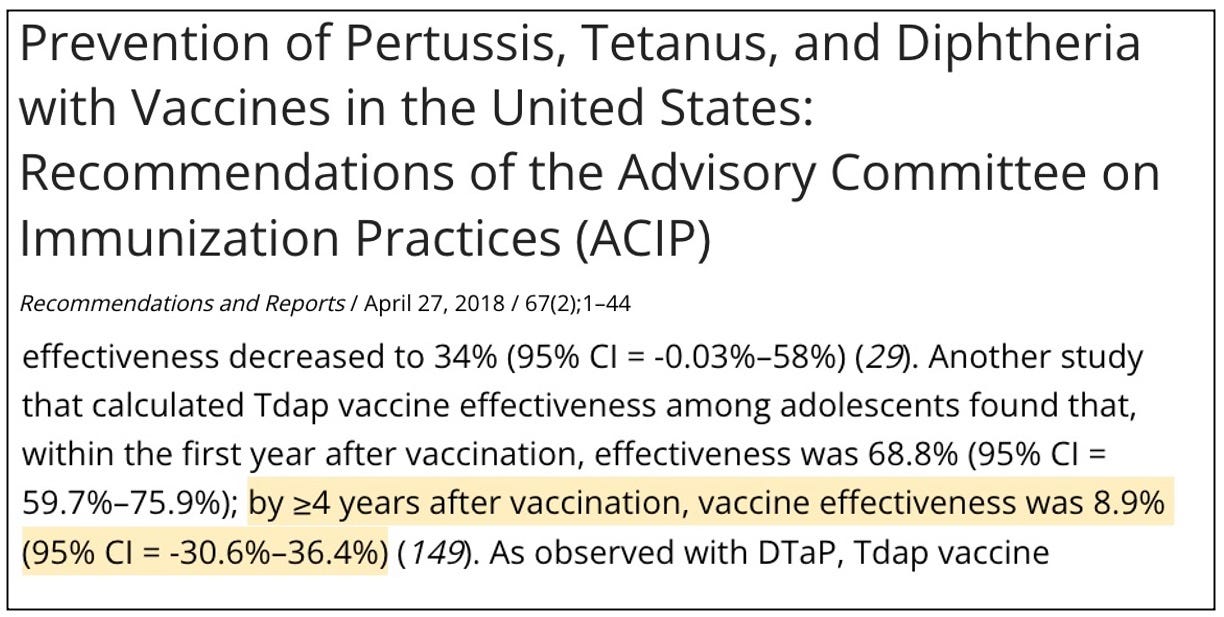Do the Pertussis Vaccines Used in the U.S. Stop Infection and Transmission of the Pertussis Bacterium?
Your bite-size dose of immunity against vaccine misinformation. Spread the truth.
Do the pertussis (whooping cough) vaccines used in the United States stop infection and transmission of the pertussis bacterium?
“Yes” or “No”?
When picking an answer, keep in mind that the pertussis vaccine is part of a combination vaccine (DTap or Tdap) mandated to attend grades K-12 in every U.S. state – it is the “P” in DTaP and the “p” in Tdap – and the justification for this rights-crushing mandate is the belief that the vaccine prevents transmission of pertussis in the school setting.
(Answer below. Paywall will be removed in four days!)
The answer is “No”! In 1999, the CDC recommended “exclusive use of acellular pertussis vaccines for all doses of the pertussis vaccine series” and that vaccine does not prevent transmission. This is explained in an FDA study titled “Acellular pertussis vaccines protect against disease but fail to prevent infection and transmission in a nonhuman primate model” and confirmed in a consensus paper explaining that:
“aPVs [pertussis vaccines] … cannot avoid infection and transmission. … aPV pertussis vaccines do not prevent colonization. Consequently, they do not reduce the circulation of B. pertussis and do not exert any herd immunity effect.”
The CDC and FDA, in formal responses to the Informed Consent Action Network (ICAN), confirm the foregoing, as does this paper explaining:
“That vaccination does not prevent B. pertussis infection in humans, nor the circulation of the organism in human populations in any important manner, comes from the observation that the inter-epidemic intervals have not changed in a major way since the implementation of mass vaccination.”
Incredibly, the immunity provided by pertussis vaccines, while potentially reducing symptoms of the disease, actually renders those receiving these products susceptible to repeated infection with pertussis; meaning, it increases the potential to spread this bacterium because it renders those vaccinated repeat-asymptomatic-carriers. (See this study, “Lack of mucosal immune responses after aPV administration favor infection, persistent colonization, and transmission of the pathogen”, and this study, “Because of linked-epitope suppression, all children who were primed by DTaP vaccines will be more susceptible to pertussis throughout their lifetimes, and there is no easy way to decrease this increased lifetime susceptibility.”)
In any event, immunity from the pertussis vaccine wanes rapidly, even after six doses in childhood! As the CDC explains, a study of pertussis vaccine immunity found that four years after five doses of DTaP and one of Tdap “vaccine effectiveness was 8.9%.” Nonetheless, the CDC makes additional doses of the pertussis vaccine optional in adulthood.
Screenshots of the relevant portions of the websites linked above (in case they change):










